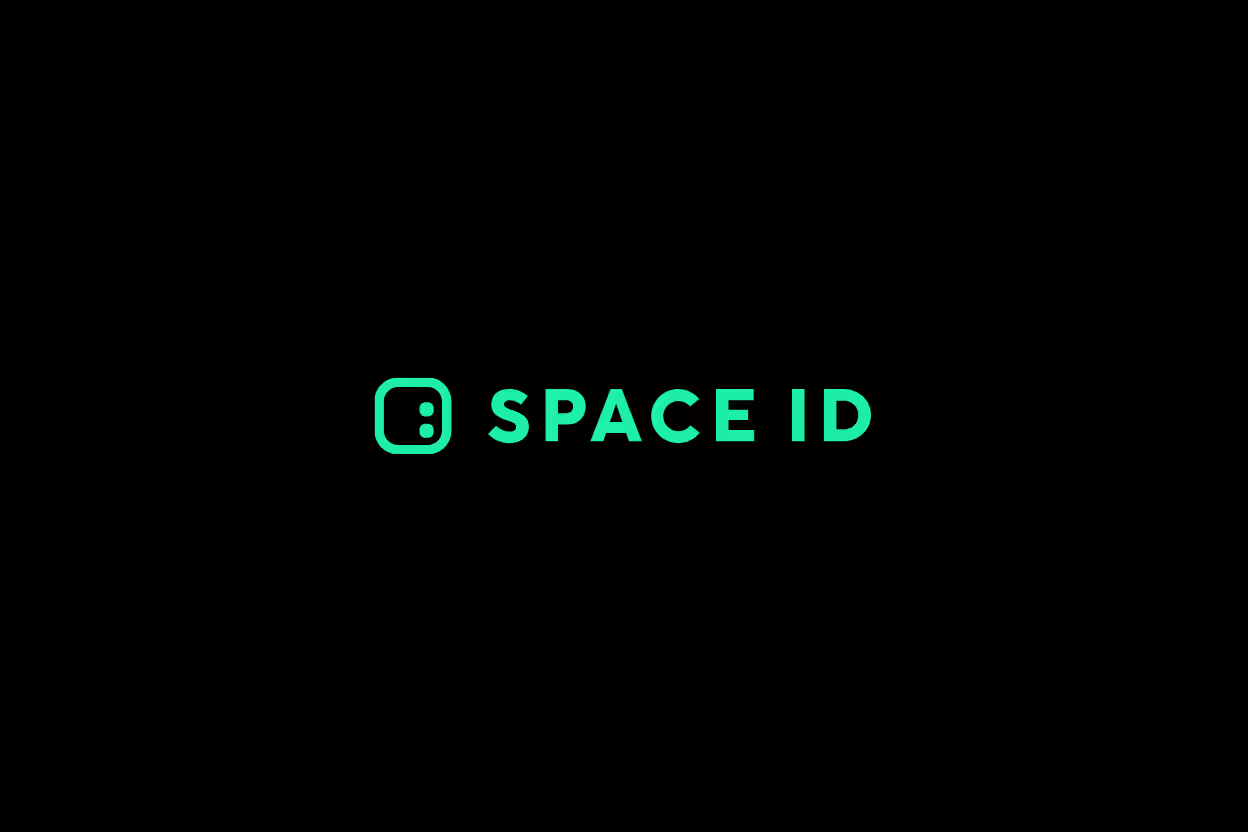In the evolving Web3 space, managing your digital identity is crucial. Space ID names serve as a simple, human-readable alternative to long blockchain addresses. They help founders and creators in crypto and blockchain projects easily share and manage their identity across decentralized networks.
Using a Space ID name cuts down confusion and friction when interacting with wallets, apps, and contracts. This enhances trust and efficiency by making transactions and communication clearer. If you're building or investing in Web3 ventures, understanding how to register and use a Space ID name can improve how you engage with the ecosystem.
Steps to Register a Space ID Name
Registering a Space ID name is straightforward once you understand each step clearly. This section breaks down the process into four essential parts that guide you from creating a digital wallet to resolving common issues, so you can claim your unique Space ID confidently.
Creating and Connecting a Compatible Wallet
To start, you need a compatible crypto wallet that supports Space ID registration. Popular wallets include MetaMask, Trust Wallet, and Coinbase Wallet — all of which interact smoothly with decentralized naming platforms.
If you don't have one yet, creating a wallet involves:
- Downloading the wallet app or browser extension.
- Generating a new account by following on-screen prompts.
- Carefully saving your recovery phrase in a secure location.
Once your wallet is ready, connect it to the Space ID platform by clicking the “Connect Wallet” button on the registration site. Approve the connection through your wallet interface. This link allows the platform to identify and authorize you for the registration process.
Selecting and Searching Your Desired Space ID Name
Your next step is to pick a Space ID name that reflects your brand, identity, or project. Start by entering your preferred name into the search field on the Space ID platform. The system will instantly check if it’s available.
Keep these points in mind when choosing your name:
- Aim for something short, memorable, and relevant.
- Avoid names with special characters that might cause confusion.
- Consider future branding and consistency across platforms.
If your preferred name is already taken, brainstorm alternatives by adding a suffix, prefix, or slight variation.
Completing the Registration Process
After selecting an available name, proceed to register it by following these steps:
- Confirm your wallet connection.
- Review the registration details carefully.
- Choose a registration period (e.g., one year).
- Complete the payment. Most platforms accept cryptocurrency payments like ETH, but some may offer credit card options.
Once paid, the Space ID system will process your registration on the blockchain. Confirmation usually happens within a few minutes. You’ll receive a notification and be able to see your Space ID listed under your wallet’s domain names.
Common Issues During Registration and How to Solve Them
Problems during registration happen, but most have simple fixes. Watch out for:
- Wallet connection errors: Refresh the page, disconnect and reconnect the wallet, or update your wallet app.
- Name availability glitches: Clear your browser cache or try a different spelling.
- Payment failures: Ensure you have enough funds and confirm the correct network (Ethereum, for example).
- Transaction delays: Blockchain congestion can slow confirmations. Wait a bit, or check the network status with a blockchain explorer.
If stuck, check any error messages carefully and consult community forums or the Space ID help center. Patience and double-checking your inputs usually solve most issues.
Getting your Space ID name registered correctly sets the stage to enhance your Web3 identity and interactions. This process not only secures your name but also integrates it cleanly with your crypto assets and apps.
Using Your Space ID Name Effectively
Once you've registered your Space ID name, it's time to put it to work. Using your Space ID properly helps you build a consistent presence across Web3 platforms while keeping your information secure. The real value of your Space ID shows when you link it with dApps, strengthen your security, and keep your profile up to date. Each step ensures your digital identity remains trustworthy and practical.
Linking Space ID with Decentralized Applications
Space ID names simplify interaction with decentralized apps by replacing complicated wallet addresses with easy-to-remember names. Many popular dApps now support Space ID integrations, saving you time and reducing errors when connecting or making transactions.
Here are some ways to connect your Space ID with dApps effectively:
- Wallets and Exchanges: Use your Space ID name instead of long addresses when sending or receiving crypto, ensuring fewer mistakes.
- NFT Marketplaces: Link your Space ID to your NFT collectibles, creating a clear identity and improving discoverability.
- DeFi Platforms: Quickly authenticate your accounts on lending or staking platforms by using your Space ID for login or payment.
- Social Web3 Apps: Claim your Space ID as your username or profile link to build a recognizable presence in decentralized social networks.
When dApps recognize your Space ID, they treat it as an official identifier connected to your wallet. This results in smoother transactions and a more approachable user experience. Always check if the dApp supports Space ID integration before starting to avoid confusion.
Enhancing Security and Privacy with Space ID
Security matters most when managing any blockchain identity. Space ID offers several options to help protect your data and control what others see.
Consider these best practices:
- Enable Two-Factor Authentication (2FA): Add an extra layer of protection on platforms that support it. It helps prevent unauthorized access.
- Manage Visibility Settings: You can adjust which profile fields are public or private depending on who you want to share your information with.
- Use Separate Profiles for Different Purposes: Create distinct Space ID profiles for personal, project, or business use to limit data exposure.
- Regularly Monitor Connections: Review which apps or devices have access to your Space ID and revoke any you no longer use.
- Keep Wallet and Recovery Phrases Secure: Never share your private keys or recovery phrases linked to your Space ID wallet.
By actively managing security and privacy, you reduce risks of phishing, identity theft, and unwanted tracking. Think of your Space ID as a digital passport—guard it carefully.
Managing and Updating Your Space ID Profile
Keeping your Space ID profile accurate helps maintain your reputation and prevents outdated information from causing confusion.
Follow these steps to manage your profile:
- Log into your Space ID dashboard: Use your connected wallet to access settings.
- Update your profile details: Edit your display name, avatar, bio, website links, or social accounts anytime.
- Adjust privacy controls: Choose which fields are visible publicly or only to selected contacts.
- Renew your name registration: Keep track of your expiration date and renew promptly to avoid losing your Space ID.
- Delete or transfer your Space ID: If needed, you can deactivate or transfer ownership to another wallet.
Frequent updates signal to collaborators and platforms that your identity is current and active. It also keeps your digital presence professional and trustworthy for Web3 communities.
Using your Space ID thoughtfully not only improves your interactions but also strengthens your Web3 brand, combining convenience with control.
Understanding the Role of Space ID in Decentralized Identity
Managing identity in the crypto space often feels like juggling complex strings of numbers and letters. Space ID changes that by creating a decentralized identity system that puts control back in your hands. It simplifies how you prove who you are online, while ensuring your data isn’t locked away in one place or controlled by a central authority. This section explores how Space ID supports decentralized identity and why it matters for founders and investors within crypto projects.
Benefits of Decentralized Identity for Crypto Founders and Investors
For founders launching crypto ventures and investors backing new ideas, decentralized identity tools like Space ID offer clear advantages:
- Trust through Transparency: Instead of relying on centralized databases, decentralized identity verifies credentials on open networks. This reduces fraud risks and boosts credibility in peer-to-peer settings.
- User Autonomy: You own your identity data and decide what to share. This autonomy makes identity management safer and less vulnerable to hacks or misuse.
- Streamlined Interactions: Imagine exchanging contract details or investment info without re-verifying your identity every time. Space ID enables faster onboarding and smoother communication.
- Reduced Friction: Cutting out middlemen in identity verification saves time and cuts costs — critical for startup operations moving quickly.
- Improved Privacy: Decentralized identity lets you verify essential details without exposing extra personal information, preserving your confidentiality.
For founders raising funds or managing Web3 communities, these benefits help build a stronger reputation and foster real connections. Investors also gain clearer insights about projects and teams. It’s not just about convenience; it’s about creating a foundation of reliability and control in an often opaque digital ecosystem.
Future Outlook of Space ID and Decentralized Identity Systems
Where is Space ID headed, and what does this mean for Web3? The future looks promising, with several developments in sight:
- Broader Adoption Across Applications: More dApps, marketplaces, and crypto platforms will likely support Space ID, making it a universal standard for identity in Web3.
- Cross-Chain Compatibility: Space ID could expand to cover multiple blockchain ecosystems, allowing seamless identity use regardless of what chain you work on.
- Integration with Regulatory Frameworks: As governments start focusing on blockchain regulation, decentralized identity systems might offer compliant yet privacy-respecting solutions for KYC and AML processes.
- Enhanced User Experience: Further improvements in wallet and platform interfaces will make registering and using Space ID even easier, attracting more everyday users.
- Identity Aggregation: Space ID could evolve into a hub where users collect and manage various credentials, reputation scores, or digital assets, all tied to one identity.
By providing a clear identity layer, Space ID supports the maturation of the Web3 ecosystem. It empowers not just individual users but projects and investors who need trusted, efficient, and private identity verification. If you want to stay ahead in blockchain ventures, understanding and adopting decentralized identity will become a key advantage.
This evolving role of Space ID offers exciting opportunities for anyone serious about building or investing in decentralized projects. It’s more than a name—it’s your gateway to trusted, transparent, and autonomous interaction in Web3.
Frequently Asked Questions about Space ID Registration and Usage
Navigating the registration and use of a Space ID name may raise some common questions. Understanding these answers helps clear doubts and avoids pitfalls as you claim and utilize your unique digital identifier. This section covers the most frequent queries users have when working with Space ID, providing straightforward explanations to guide you through practical concerns.
What Is a Space ID and Why Should I Register One?
A Space ID is a human-readable name that replaces complicated blockchain addresses. Instead of sharing long strings of letters and numbers, you share a simple name that’s easier to remember and recognize. Registering a Space ID:
- Boosts trust when sending or receiving crypto.
- Makes interactions on decentralized apps smoother.
- Provides a consistent identity across different platforms.
If you’ve ever lost time double-checking wallet addresses or worried about errors, a Space ID resolves that by acting like your blockchain “username.”
How Long Does the Registration Process Take?
Registration is usually completed within minutes after payment confirmation on the blockchain. However, this depends on:
- Network traffic: Congestion can delay transaction confirmations.
- Wallet setup: Connecting and approving can take time if unfamiliar.
- Platform responsiveness: Some interfaces may load slower than others.
Typically, you should expect your Space ID to appear in your account moments after processing, but staying patient through brief delays is normal.
Can I Change or Transfer My Space ID Name Later?
Space ID systems usually allow managing your profiles post-registration. This includes:
- Updating profile details like avatar, links, or descriptions.
- Renewing the name before expiration to keep ownership.
- Transferring the Space ID to another wallet if needed.
Changing the actual Space ID name, however, may not be possible without releasing it first and registering a new one. Think of it like a domain name — you maintain control, but the exact name stays the same during your ownership.
What Are the Costs Involved in Registering a Space ID?
Costs vary by platform but typically include:
- A registration fee payable in cryptocurrency.
- Optional renewal fees for ongoing ownership.
- Network gas fees for blockchain transactions.
Make sure your wallet holds enough funds to cover both registration and any associated gas fees, otherwise payments may fail.
How Secure Is My Space ID and Associated Data?
Security depends largely on your wallet protection and platform features. Space ID itself does not store sensitive data centrally, reducing risk of large-scale breaches. Still, safeguard your wallet by:
- Never sharing your private keys or recovery phrase.
- Using strong passwords and two-factor authentication where available.
- Regularly reviewing app permissions linked to your Space ID.
Treat your Space ID like a key to your digital wallet—it’s only as secure as the measures you use.
Will My Space ID Work Across All Blockchains and dApps?
Many Space ID services are designed to be cross-chain compatible or expanding in that direction. However, full integration depends on each dApp’s support. Before relying solely on your Space ID for transaction or login purposes, check if the target app officially supports it. This prevents chances of lost funds or failed logins.
What Happens If I Forget to Renew My Space ID?
If you don’t renew your registration before expiration, your Space ID becomes available for others to claim. This can result in:
- Losing control over your digital identity.
- Potential confusion or impersonation risks.
- Extra effort to reclaim or register a new name.
Set reminder alerts or mark renewal dates on your calendar to keep ownership uninterrupted.
How Do I Get Support If I Encounter Problems?
Most Space ID platforms provide:
- A help center or FAQ database.
- Community forums where users share tips.
- Direct support channels like email or chat.
When issues arise, documenting error messages and transaction details helps speed up resolution. Don’t hesitate to ask for help—online communities often resolve common problems quickly.
By addressing these questions, you can avoid common traps and handle your Space ID confidently. This knowledge helps set a strong foundation for managing your Web3 identity effectively.
Conclusion
Registering and using a Space ID name simplifies how you manage your identity in Web3. It replaces long blockchain addresses with a clear, memorable name that boosts trust and reduces errors. By following straightforward steps—from wallet setup to linking with dApps—you establish stronger control over your digital presence.
Space ID plays a key role in decentralizing identity, providing both security and convenience for founders and investors. As adoption grows, it will become a standard way to interact within blockchain ecosystems. Consider securing your Space ID to streamline transactions and build credibility in your Web3 projects.
Keep your profile updated and security tight to maintain a reliable identity. Taking these actions helps you move confidently forward in decentralized networks, supported by a clear and trusted digital name.






